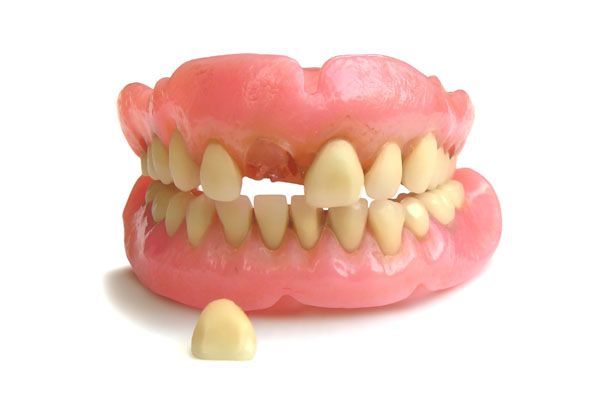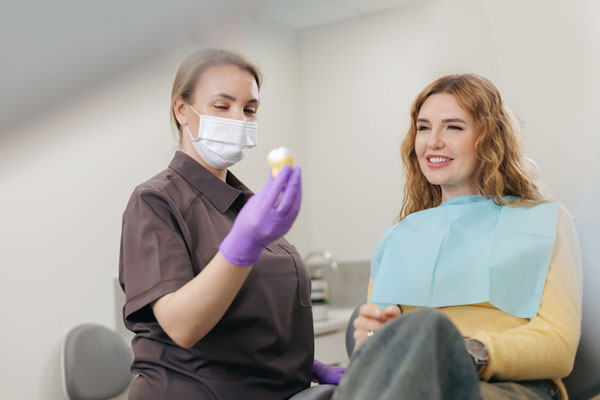Improve Your Oral Health With Endodontics

If you have suffered from a toothache, you know the pain can be severe. In some cases, the problem is inside your tooth. Endodontics could be the answer to your situation.
What is an endodontic procedure?
Brushing, flossing, and regularly visiting the dentist are vital steps to keeping your teeth healthy. Sometimes, however, your teeth need further care due to disease or injury. Endodontics can offer you some of the most advanced options for preserving your natural teeth and improving oral health. It is the dentistry branch associated with treating the soft dental pulp and tissue around the roots of your tooth.
Your dentist tries to save your natural teeth when you have problems in most cases. You can forego the difficulties that can come with tooth removal, such as:
- Other teeth shifting
- Trouble chewing
- Changes to your bite
Replacing a natural tooth with an artificial one can help counteract these issues, but the process requires additional dental visits. A dentist who performs endodontics can start treatment with methods that help preserve your teeth.
What is a root canal?
A root canal is a standard endodontic procedure. The pulp inside the tooth can become infected with bacteria from a severe cavity or an injury. During a root canal, the dentist opens the top part of the tooth and uses tools to get to the inside. Then the dentist clears away infected or damaged tooth pulp with small tools and files.
The dentist may use the files to reshape the inside of the tooth and root and use water to irrigate the area, removing any remaining infected pulp. The dentist may also use an antimicrobial solution to kill bacteria.
Once the previously infected area inside the tooth is clean, the dentist adds a material called gutta-percha. It has a rubbery consistency. A temporary filling covers the opening on your tooth until a crown is made.
When the crown is ready — usually within a few weeks — your dentist places it on top of the treated tooth. The dentist may ask you to return later for an X-ray to check the condition of the tooth.
A tooth treated with endodontics can last a lifetime. However, you need to care for it like you do untreated teeth. Brushing two or three times a day, flossing daily, and regularly visiting your dentist ensure your tooth stays healthy.
According to the European Journal of Dentistry, the success rate of endodontics ranges from 86% to 98%. However, sometimes a tooth does not heal properly after an endodontic procedure. In that case, your dentist may perform endodontic retreatment.
The dentist opens the tooth again, removing the gutta-percha and any infection inside the tooth. The area is cleaned and shaped, and new material is added. The dentist applies another temporary filling until a new crown is made. If the tooth cannot be saved, your dentist may recommend removing it. However, it is usually a last resort.
Conclusion
Endodontics has made it possible to save damaged teeth that were, at one time, routinely extracted. Endodontic procedures are common, safe, and widely successful today. If your dentist recommends endodontics, be sure to ask any questions you have. With endodontics, you should keep your natural tooth for years to come.
Request an appointment here: https://thechesterfielddentist.com or call Chesterfield Dentist at 8044120867 for an appointment in our Chester office.
Check out what others are saying about our dental services on Yelp: Endodontic Surgery in Chester, VA.
Recent Posts
Endodontics focuses on diagnosing and treating problems within the tooth's pulp and surrounding tissues. Endodontics can preserve its function and prevent further complications if a tooth is severely damaged or infected. Recognizing the signs that indicate the need for endodontic treatment allows patients to seek timely care and maintain their oral health.Persistent tooth pain is…
The purpose of dental restorations is to replace permanent teeth that are lost. This can happen because of trauma to the tooth that renders it irreparable or decay that is so extensive that it requires extraction. There are several restoration options for replacing a missing tooth. Some are removable while others are permanently fixed in…
A healthy smile depends on more than daily brushing and flossing. If you are experiencing gum disease or severe plaque buildup, a deep teeth cleaning can restore your oral health. Unlike a standard dental cleaning, this treatment targets bacteria below the gumline and reduces the risk of serious oral health issues.Deep teeth cleaning, also known…
Multiple damaged or missing teeth can impair function and degrade the appearance of your smile. However, dental restorations can restore both the look and function of your teeth.There are many different types of dental restorations, and most of them can be used to address issues with multiple teeth. The type of restoration used for your…


